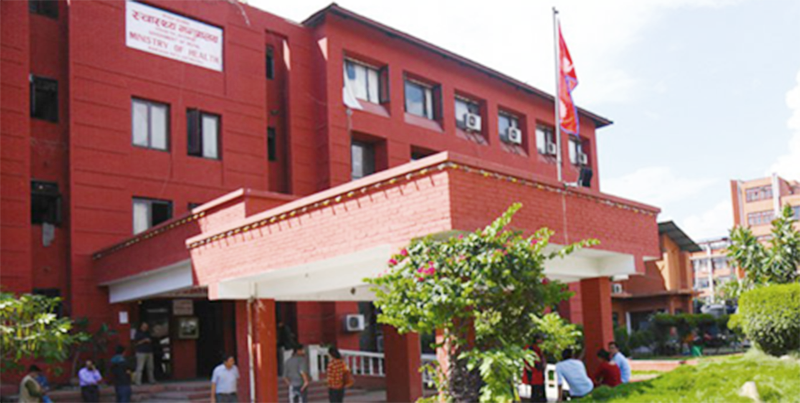Govt to let pvt labs conduct PCR tests
The government will provide swab samples to private labs and pay Rs 5,500 per test.
The move is in line with the government’s decision to conduct at least 10,000 tests a day from June 29.
KATHMANDU, JUNE 14
The Ministry of Health and Population today announced that it would allow private laboratories to conduct polymerase chain reaction tests to diagnose coronavirus patients.
The ministry’s move comes in the wake of criticism for failing to ramp up PCR tests.
Since the past few days, people have taken to the streets in cities across Nepal, including the capital city, demanding that the government ramp up PCR tests.
Spokesperson for the Ministry of Health and Population Jageshwor Gautam today said the ministry would let private laboratories test swab samples for COVID-19. He added that the government would bear the cost of tests done at private laboratories.
Khem Bahadur Karki, adviser to Minister of Health and Population Bhanu Bhakta Dhakal, told THT that the government would provide swab samples to private laboratories and pay Rs 5,500 per test. He said the decision to allow private laboratories to conduct PCR tests was in line with the government’s decision to conduct at least 10,000 tests a day from June 29.
Karki added that Minister Dhakal had planned to conduct 10,000 PCR tests a day from June 29, but the government might meet that target even before that.
Karki added that the government was also trying to add PCR machines in Butwal (Province 5), Pokhara (Gandaki Province), Sudurpaschim Province and Karnali Province. He added that the government would soon make provisions for automated extraction of swab samples. He said the government wanted to procure seven more PCR machines — one for each province.
He said the government would give permission to private laboratories to conduct PCR tests only after assessing the capacity of laboratories in terms of human resources and bio-safety level.
Baburam Marasini, former Director of the Epidemiology and Disease Control Division, said the government’s decision to allow private laboratories to conduct PCR tests was a step in the right direction.
“Nowadays, patients are being told to undergo COVID-19 tests before certain medical procedures.
If a woman with labour pain is not tested immediately for COVID-19, then her right to seek health service might be affected,” Marasini added. With more labs equipped with testing infrastructure that problem is likely to be overcome.
He said the plan was to have at least 10 more laboratories mostly in Kathmandu valley – that could conduct PCR tests.
Marasini added that on an average one private lab could conduct 400-500 PCR tests in a day, but if machines were run round the clock and staff worked in shifts they could conduct more than 500 tests in one day. Marasini said there was urgent need to ramp up PCR tests as the number of COVID-positive cases were rising sharply. “For people living in remote areas such as Baitadi, Achham and Dailekh, the government needs to conduct PCR tests in those areas because it would be tough to transport swabs from those districts to Kathmandu or other cities,” he added.
Assistant Spokesperson for the Ministry of Health and Population Samir Kumar Adhikari said the government had earlier designated 16 private hospitals, including a dozen private hospitals in Kathmandu valley, as COVID hospitals where corona patients could undergo treatment.
“However, the number of COVID-19 patients is very low in Kathmandu and at present beds available in government hospitals are enough for COVID-19 patients,” he said.
Adhikari said people would not have to pay even if they underwent treatment in private designated hospitals.
A version of this article appears in e-paper on June 15, 2020, of The Himalayan Times.
READ ALSO:






